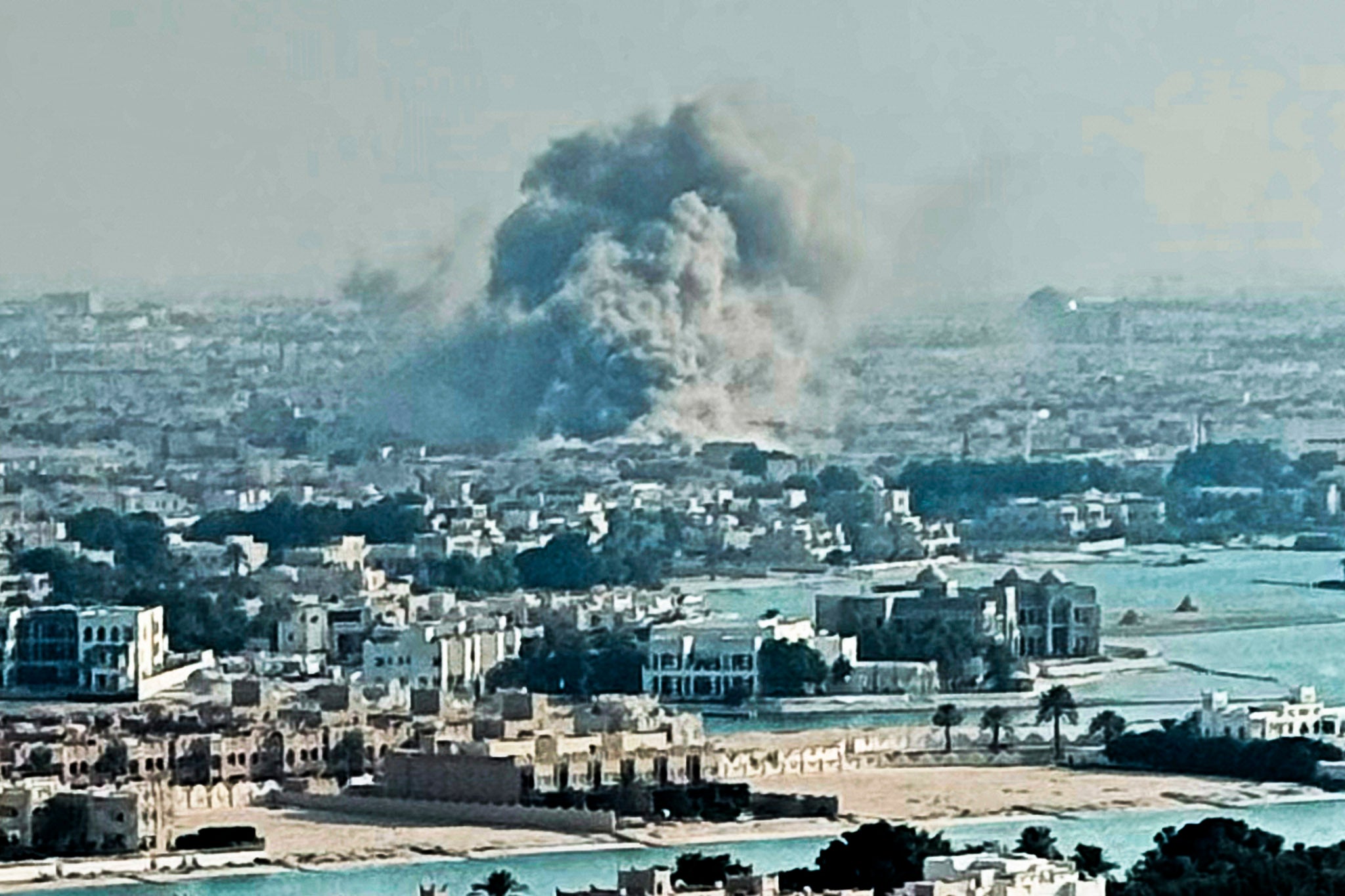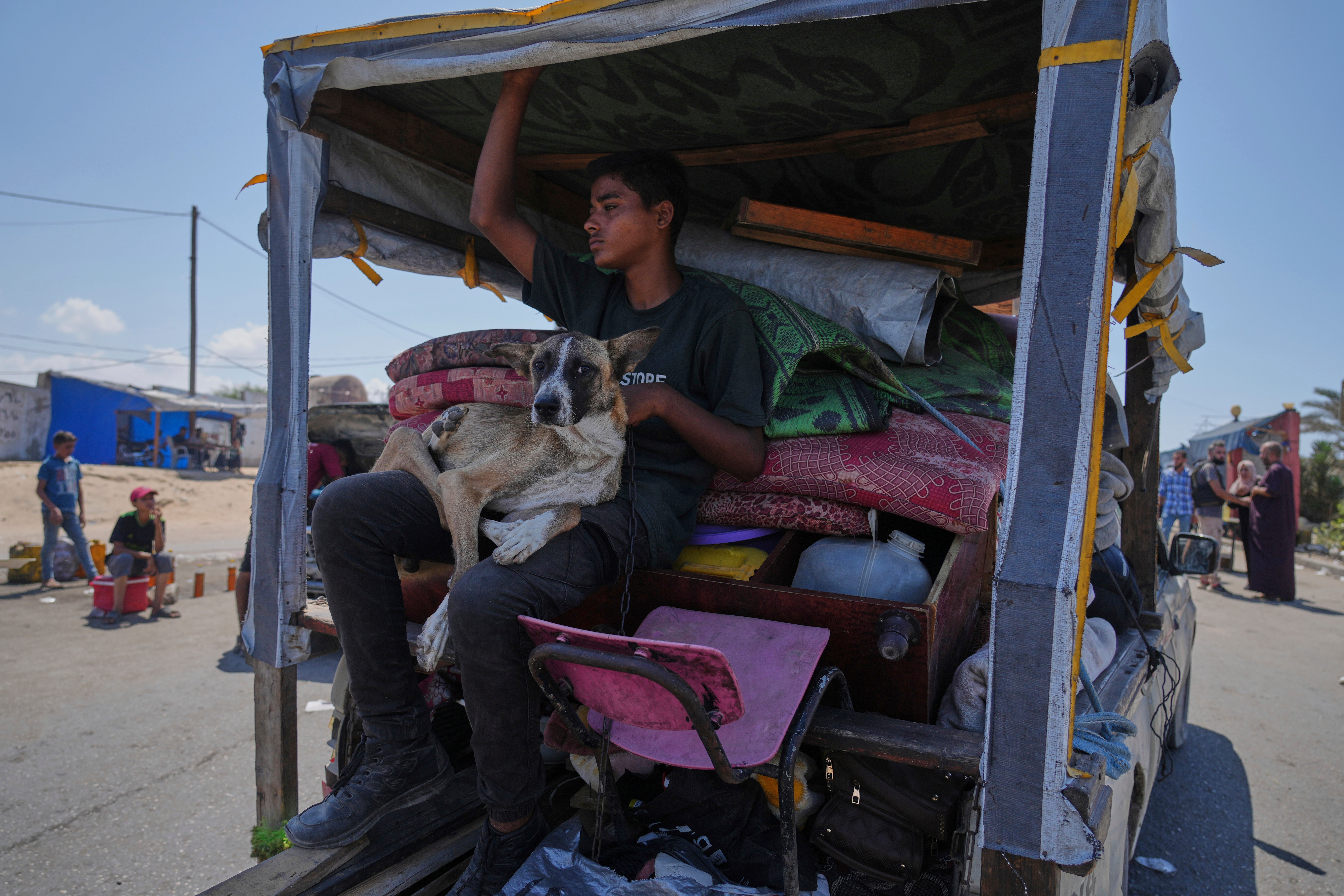Completely unprecedented.
This was the two-word description voiced to me by a shocked diplomat in the Middle East in the immediate aftermath of Israel’s extraordinary missile strike on Qatar this afternoon.
This is a corner of the world that has weathered shock after shock over the last 23 months, a region repeatedly on the brink of protracted and dangerous total war.
But Israeli strikes in the heart of the Qatari capital, which the Israeli military said were targeting Hamas leadership even as truce talks were allegedly underway, push it to the very edge of an abyss.
These strikes set Israel firmly against Qatar, a regional player and the chief mediator in the peace talks for Gaza and beyond.
They make Doha – once a main meeting point and venue for truce negotiations – now a new theatre of war in the Gaza conflict.

In fact, they dashed hopes for ceasefire talks anywhere: the Israeli military declined to officially comment on who exactly the target was, or whether anyone had been killed.
However, Israeli media, citing government sources, said the focus was on top Hamas negotiators and leaders, including Khalil al-Hayya, Zaher Jabarin, Khaled Meshaal and Mohammad Darwish. Hamas said five of its members were killed, but none of those in the negotiating team.
The strike is such a stark rejection of the diplomatic solution to the slaughter in Gaza that the largest group of families of Israeli hostages expressed deep alarm.
In a statement in the aftermath, they wrote that a “grave fear” now hangs over them, as the chance of bringing home the remaining 50 or so hostages and captives held by Hamas militants “faces greater uncertainty than ever before”.
It also underscores just how far the ripples from Israel’s war with Hamas in Gaza have spread – tidal waves that have, since Hamas’s 7 October attack, engulfed Lebanon, Syria and Iran, the skies over Jordan and Iraq – and now Qatar.
Notably, this comes on the heels of Doha already being dragged into the crossfire when it became the target of Tehran’s roughly 20-missile retaliatory strike against Israel and the US for their mass bombings of Iran back in June.
Qatar is home to Al Udeid base – the largest US base in the region and the forward headquarters of US Central Command. I understand Doha was given no warning from either side in that attack and had to scramble, at great cost, to shoot the missiles down.
Regional diplomats told me just last week that the Gulf feared the war between Iran and Israel was not over yet, and Doha, as host to this base, risked coming under fire again as the region teetered on chaos. Now they are in the crossfire for another reason.
And so, with great alarm, Doha was quick to condemn Israel’s “reckless” and “criminal attack”, calling it a “flagrant violation of all international laws and norms, and a serious threat to the security and safety of Qataris and residents of Qatar”.
They were joined by a chorus of condemnation from across the often fractured Middle East, now united in their horror (and surely concern that any of them could be dragged in next).

Saudi Arabia, the UAE, Lebanon and Turkey were among the states that called it a “blatant and cowardly” violation of Qatar’s sovereignty and of international law. To quote the Turkish foreign ministry: “This is a signal that does not aim to reach peace, but rather to continue the war.”
And it does show how emboldened Israeli leadership has become with the apparent green light from its biggest backer and weapons supplier – the United States and Donald Trump. He surely would have had a heads-up before, even if Netanyahu claimed it was “a wholly independent Israeli operation”.
It shows how far Netanyahu has come from being, even to his critics, once a comparative figure of caution and strategy. It hints at what is to come.
It paints a terrifying picture of the future with the bleakest of horizons.







